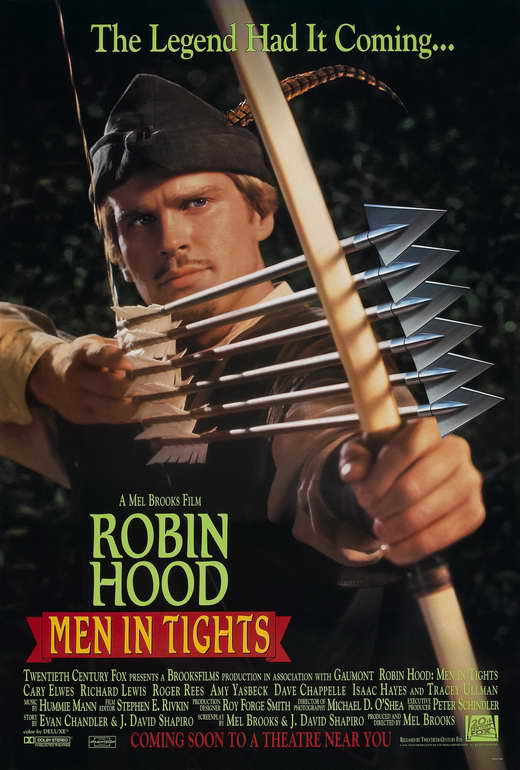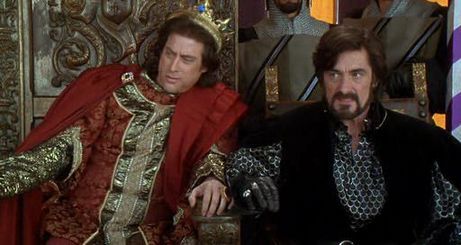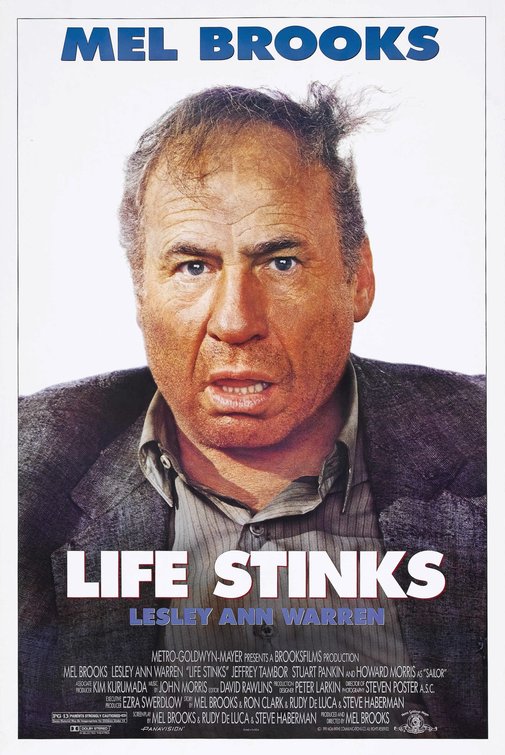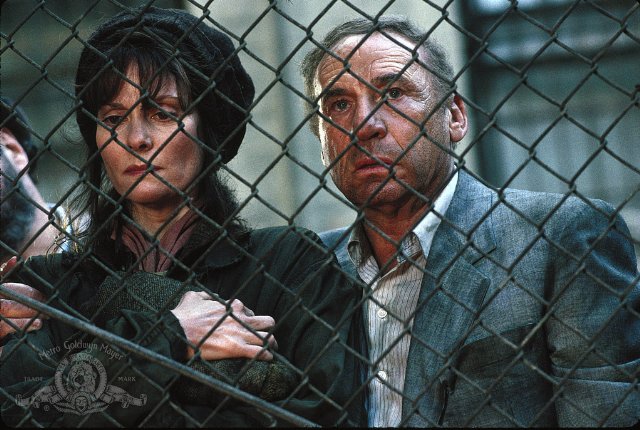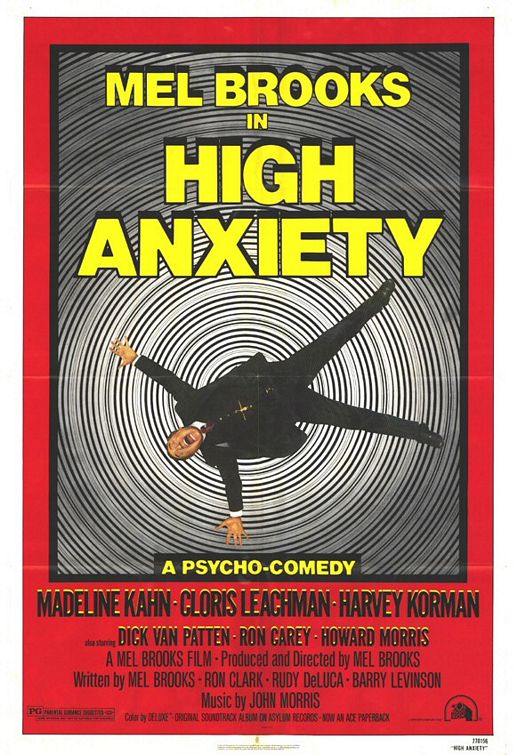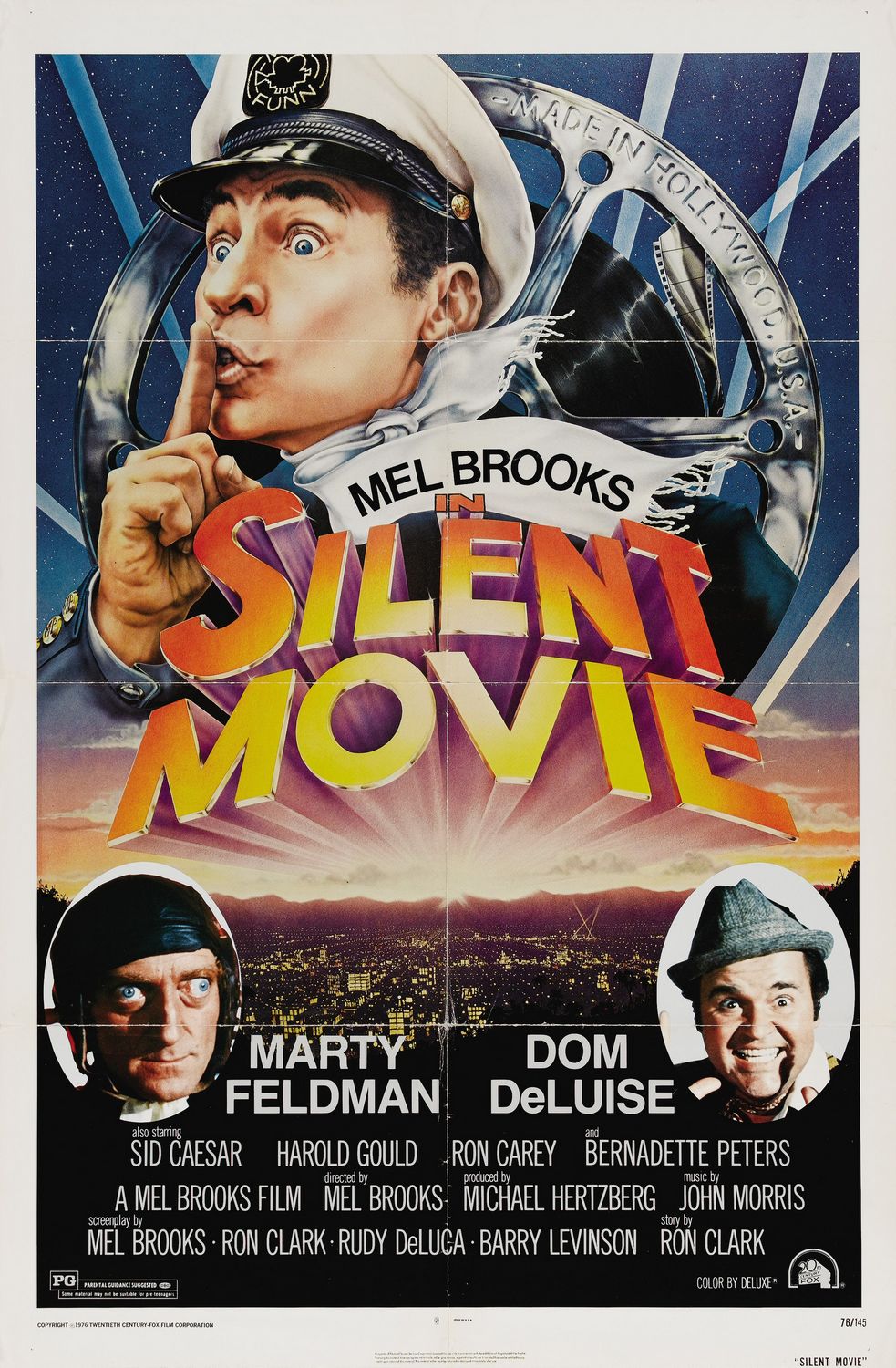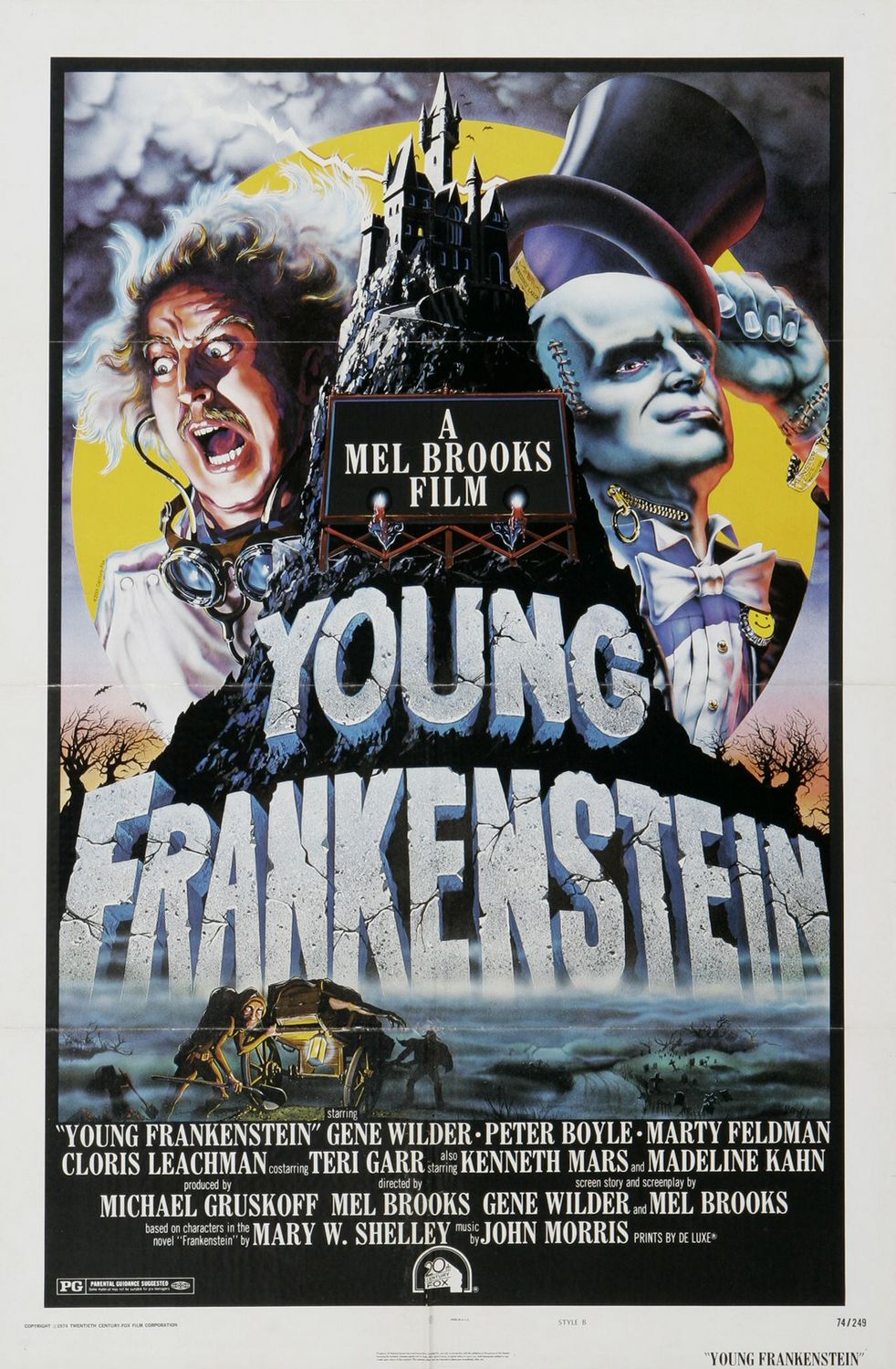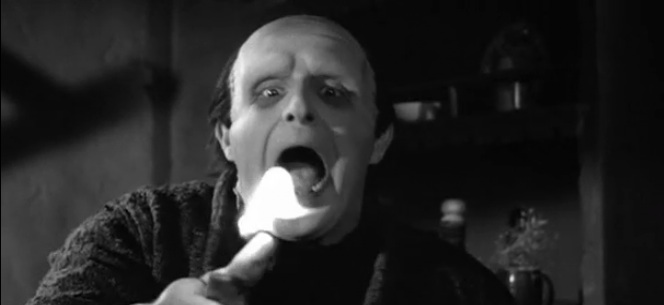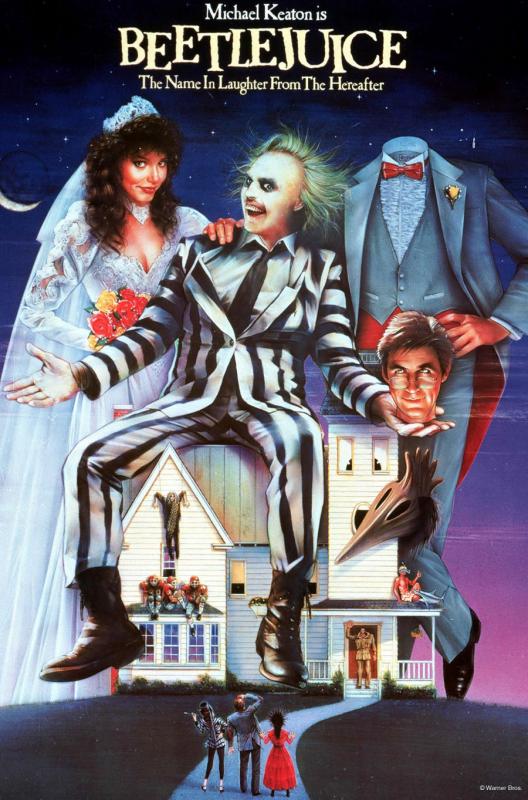
Alec Baldwin and Geena Davis play Adam and Barbara Maitland, a couple hopelessly, dorkily in love. He spends most of his time in the attic building a model of their quaint little town and she buys him a can of furniture oil and they're both really excited about it. Norman Rockwell could not invent these two.
But there's trouble in paradise. The lovers die in a freak accident and return home as ghosts only to discover that their beloved house has been infested by a dysfunctional family from New York. Unable to scare away the unwanted inhabitants, the newly-deads turn to a sleazy, disgusting spirit for assistance.

All, literally all of the characters in this movie are a lot of fun. There's no weak point. Alec Baldwin and Geena Davis are charming and delightfully inoffensive and yet they're never boring. They accept their fate with a sense of bewilderment and curiosity, refusing to let death get them down.
Jeffrey Jones, Catherine O'Hara and a young Winona Ryder play the Deetzes, the family that buys the haunted house. The father, Charles Deetz is a big land developer who came out to the country for some piece and quiet. Perfectly content with this old-fashioned lifestyle, he even comes with a copy of "American Birds." Catherine O'Hara plays a wicked step-mother of sorts as Delia, a no-talent artist, crawling out of her skin out in the sticks. With the help of Otho (Glenn Shadix), a vaguely homosexual interior decorator/spiritual, the two tear down the perfectly nice home and rebuild it into a gaudy, modern catastrophe. Winona Ryder plays Lydia, a slightly suicidal goth with a flair for photography. She's so morbid that she can see the deceased and agrees to help the lovely couple. All of these people are cartoons and they should be hair-tugging annoying, but they're all funny in their own ways and compliment one another.
Then there's the world of the dead, a DMV for the recently deceased headed by Sylvia Sidney as a heavy-smoking caseworker. Its a scene filled with tons of sight gags, colorful characters, and marvelously simple special effects.
But the real star of this movie is Michael Keaton as the bio-exorcist and titular Beetlejuice. I really can't stress enough how fantastic he is in this film. In every scene, he jumps off the screen. He plays the part as a used car salesman meets the Genie. He's a mad tornado of crass and filth. Keaton was robbed at the Academy Awards last year for his brutally honest performance in 'Birdman' but he wasn't even nominated for his performance in this. Unforgivable.

Legend says that following the surprise success of 'Pee-wee's Big Adventure', Burton began searching for a new project to pursue. However, he was despondent after script after script of unoriginal ideas. He was about to give up hope, when at the bottom of a mountain of listless screenplays, he found a concept bursting with unique imagery that fit Burton like a glove.
The Production Design by Bo Welch, the Art Direction by Tom Duffield, the Set Decoration by Catherine Mann, the Costume Design by Aggie Guerard Rodgers, and the Makeup by Ve Neill, Steve LaPorte, and Robert Short, for which they won an Oscar, are all top notch. The effects aren't perfectly polished. At no point, do I forget that we're on sets on a soundstage somewhere, but that's part of the charm. It's all rough and tumble.
The score by Danny Elfman is iconic. Whenever anyone makes a movie about conniving spirits, this theme is bound to show up in the trailer or TV spots and for good reason. Like the characters, the scenery, the special effects, and everything else about the movie, its chock full of personality.
Burton directs this story with a precise deliberation and a fantastic imagination. The stop-motion animation, particularly a snake within a snake that looks like something from 'Dune.' His excitement and love for every aspect of filmmaking is tangible and I spent most of the movie grinning ear to ear. There's a scene at the dinner table involving a choreographed dance sequence, shrimp cocktails, and the Banana Boat Song by Harry Belafonte. The last act in particular, when Beetlejuice makes his way into the human world, is a hilarious thrill ride. When I saw this film as a kid, I remember not laughing. Not because it wasn't funny, it is, but because I couldn't understand what I was watching. What is happening in this movie? Its unexpected, unpredictable, and wholly original. I can't imagine NOT liking this film. It's a blast.
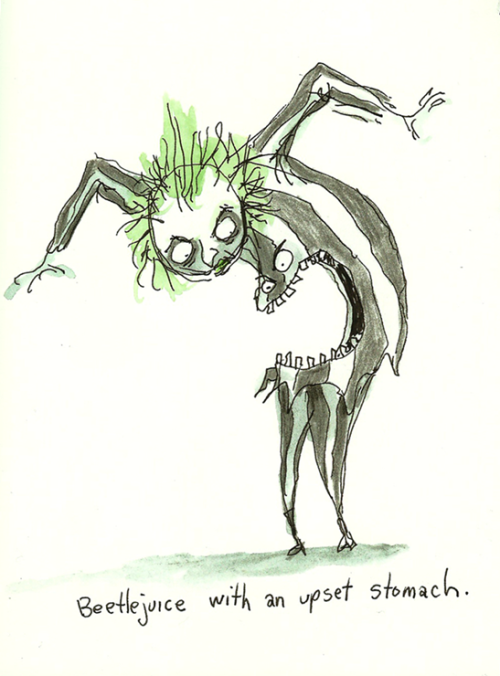
Extra Tidbit. Some crazy individuals with too much time and even more talent made an awesome Beetlejuice Rollercoaster in Minecraft. Check it out here...









